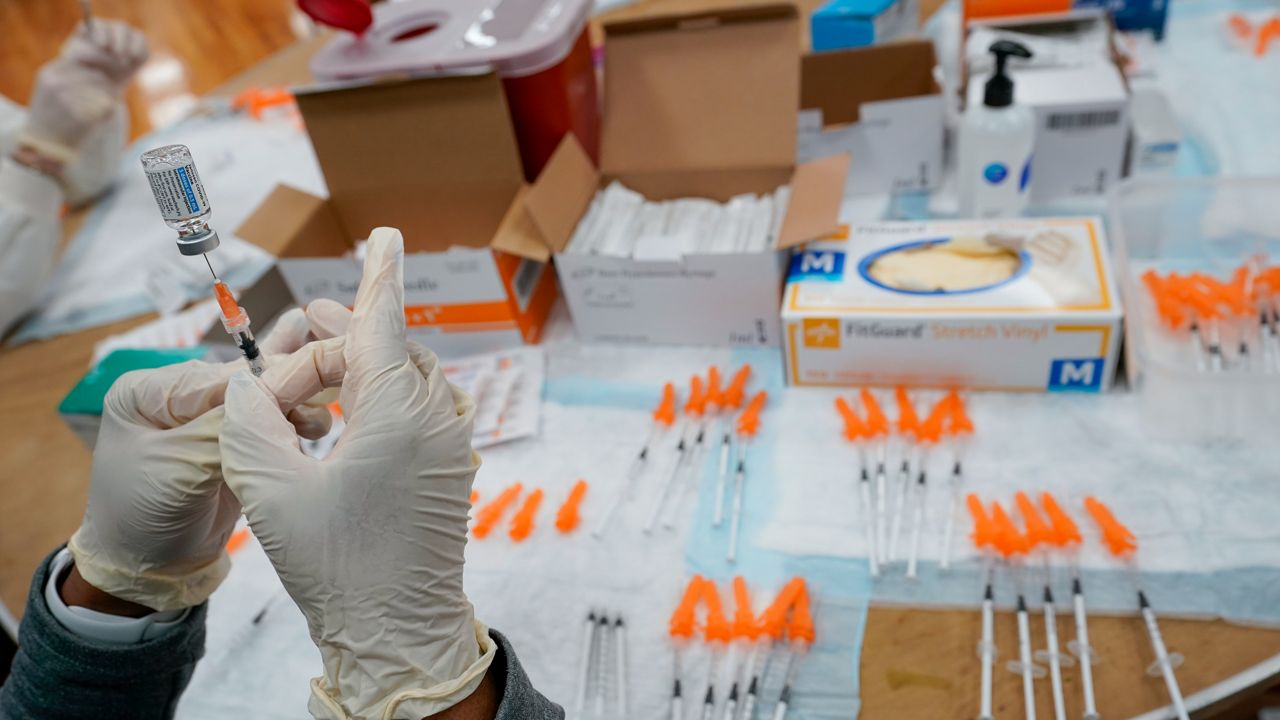Come September, New York City’s roughly 340,000 municipal workers — including teachers and police officers — will be required to either get vaccinated or face weekly COVID-19 testing.
In announcing the rule, Mayor Bill de Blasio made it clear that he hoped the private sector would follow his lead, saying he hoped they would “at minimum” institute his testing-or-vaccine mandate.
So what of the city’s nearly 4 million private sector employees?
Large and small private employers alike, from bank behemoths to the bodega downstairs, are wary of requiring vaccination for employees, business experts say.
In some cases they are waiting for the Food and Drug Administration to change the COVID-19 vaccines provisionary, emergency authorization to full approval, putting them on par with vaccines like those for measles and mumps. Others want to see the federal — not local — government, through the CDC, encourage mandatory vaccination.
They also face a host of complicating factors, such as concerns over liability if they compel employees to vaccinate, not wanting to alienate new workers as they try to cover a persistent employment shortage and hoping to avoid vaccine rules that appear discriminatory.
“Right now it's just a very ambiguous space,” said Randy Peers, the president of the Brooklyn Chamber of Commerce. “Businesses don't really know what their legal rights are. They’re really not keen on wanting to police anything.”
Few large employers in the city have vaccination rules for COVID-19. The NewYork-Presbyterian hospital network, with about 20,000 employees, has already mandated vaccination, and the NYU Langone hospital network said it will make vaccines mandatory with full FDA approval.
Citibank instituted a similar rule to de Blasio’s testing-or-vaccine rule earlier in July, requiring unvaccinated employees to take rapid tests three times a week and wear masks in the office when not at their desk.
De Blasio has left the door open to a broader vaccine mandate for the city, though he said he is currently relying on employees to take “personal responsibility” to get vaccinated.
"If that's not enough, I think we need to be ready to climb the ladder more," he said Tuesday in an appearance on MSNBC. "I think we need to look at any form of mandate. That's private sector and public sector."
Large employers may not be requiring vaccination, but some are offering incentives for those who do get immunized, such as allowing vaccinated employees to take work trips and meet with clients, according to Kathryn Wylde, president of the Partnership for New York City, a business advocacy group.
In a survey the organization conducted in May, Wylde said, about a quarter of businesses — mostly small ones — said they would require vaccines for the return to offices.
“Employers are doing everything they can short of a mandate,” Wylde said.
Large employers with a diverse workforce have different concerns from smaller, white collar firms, she added.
“If you're a hedge fund with a hundred guys, all of whom make a lot of money and are vaccinated up the kazoo, it's easy,” she said.
But vaccination rates are lowest in some communities of color, and large employers worry that vaccine mandates would be interpreted as racially discriminatory. Wylde said that large employers she is talking to are reporting that between 80% and 90% of their office-based workers — a group that is typically wealthy and white — are vaccinated.
Employers are also concerned about liability, even though they are within their rights to require vaccination, said Allison Hoffman, a professor of law at the University of Pennsylvania. The U.S. Equal Employment Commission has said that federal laws do not prohibit vaccine mandates, given accommodations for medical exemptions and sincerely held religious beliefs. Federal judges in Indiana and Texas have already upheld vaccine mandates, though the decisions likely face appeals.
Still, Hoffman said, because vaccines lack full FDA approval, “There’s still a small legal question mark there.”
Companies may also decide that mandates aren’t an effective strategy.
“We’ll see more mandates once we have full biologic approval, and we'll see companies that still don't want to mandate,” Hoffman said.
Many of those holdout businesses will be ones with a small number of employees, Peers said.
“Everyone has a role to play in a small business, so you don't want to be restricting people coming back to work,” he said.
Even with encouragement from the city, Peers and Wylde said, businesses are looking to the federal government for guidance, since the CDC’s recommendations have been considered the gold standard throughout the pandemic.
“It’s positive that city government is saying, we’re gonna do this, because hopefully that gives political courage to the federal government,” Wylde said.
